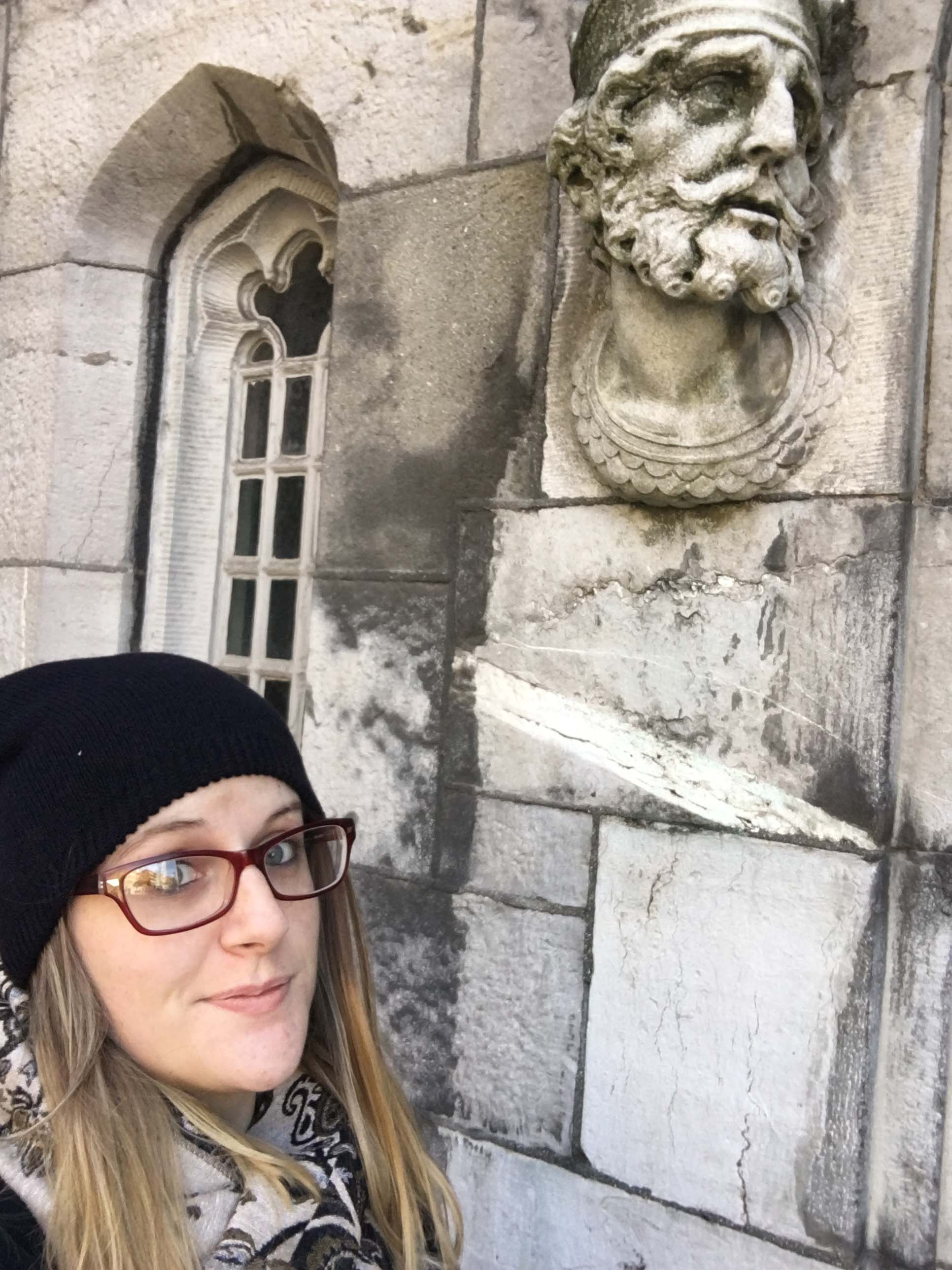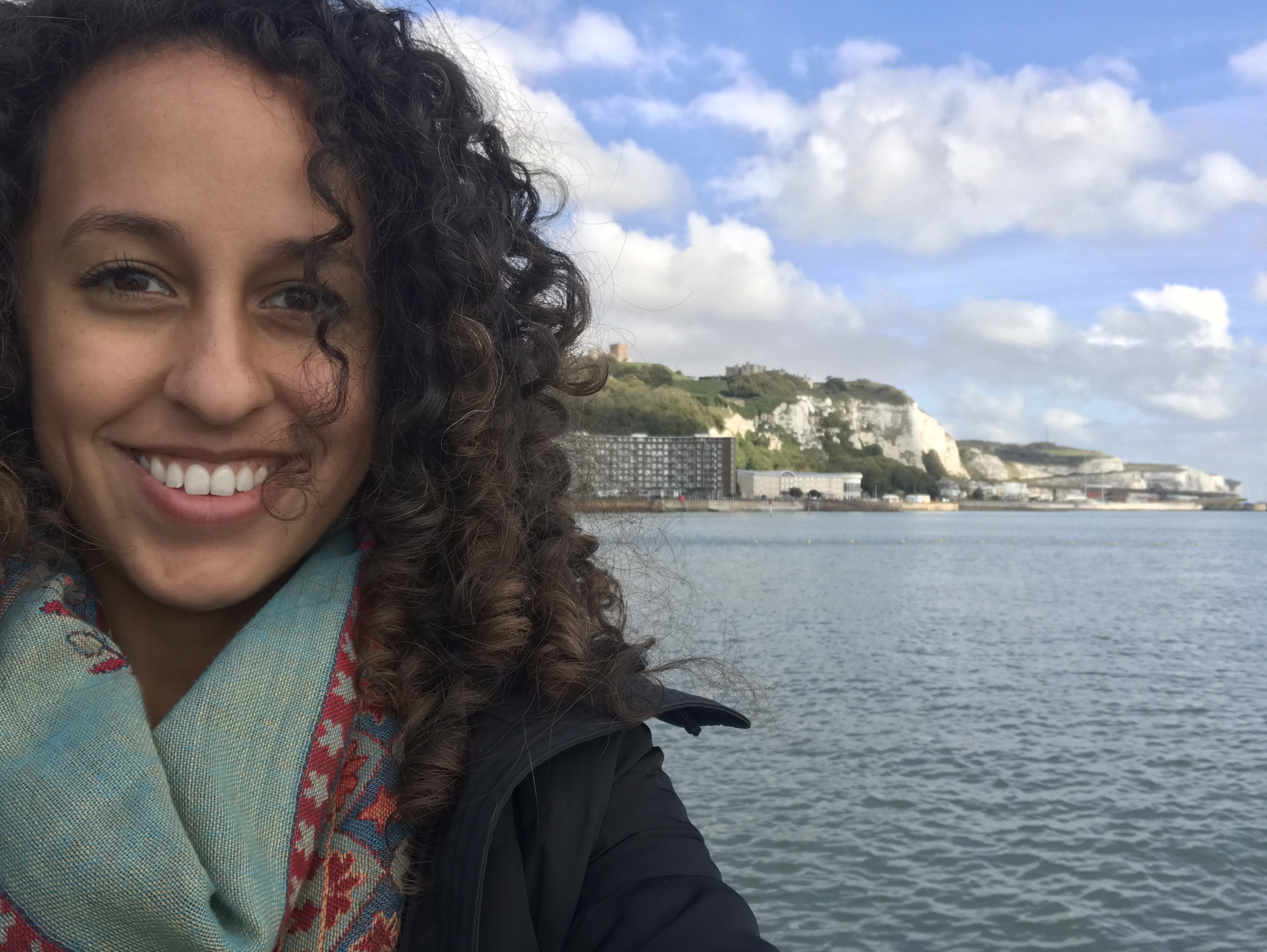

City University has become my second home

Starting off my search for a postgraduate degree was hard and, frankly, annoying. Schools in the States were so specific with what they wanted from students and it became such a hassle. When I stumbled upon Across The Pond's advertisement, I was curious. At that point, I knew that I wouldn't financially be able to go overseas for school, but I gave it a shot to see what they were about and what they offered.
The very next day I got a personal email from my advisor with a bunch of information that would help get me started with the process of looking overseas. I will admit it was overwhelming, but the enthusiasm of my advisor made me really start to look into the process of applying and searching for schools. Any time I had a question (which was very often), I got a prompt email back to help me find resources and links to help me answer my questions.
I was very nervous about moving overseas where I knew no one, and I think the influx of questions I started to ask gave away that I was nervous. My advisor became so reassuring with the process and about going traveling to the UK. The webinars and guides that were provided made everything so much easier, especially when it came time to apply for a visa. With the webinar, I was much less worried about the process and much more prepared for the application and everything that followed.
After settling into my accommodation and really taking a look around me, I felt so good! It was such a relief that after the several months of applying and waiting for responses paid off, and I was finally in London for my master's degree! City, University of London has become my second home, and I am glad I chose to go here. The general location of the school is what attracted me to the school as well as the program and since being here, there is so much the school offers, between the Student Union to the City Sports center, there is always something to do!
With the location, I am able to visit all over London in minimal time! The museums, theatre, parks, and just the ability to walk around have made my downtime so much fun! I try and discover something new every week with my classmates and friends and with our varied interests you can guarantee that we will always be able to discover something new!
- Rhea

City University provides many opportunities

I chose City for several reasons. First and foremost because it is located in central London. I had been dreaming about returning to London ever since I studied abroad here during my undergraduate degree. City also contains the Centre for Food Policy, which perfectly aligned with my interests and the trajectory I wanted for my future career. After seeing that the professors were leaders in their field, often speaking at conferences, to media and policymakers, I realized that my academic learning would be complemented with access to this growing network of people interested in making change in the food system. The cost of tuition was also significantly less than in the US, and the support City gives to international students made it seem like a perfect fit for me.
WHAT IS YOUR FAVORITE ASPECT OF YOUR COURSE?
My favorite aspect of this course is the interdisciplinary nature of the modules and the projects that teach real-world skills. I also appreciate that the assignments consider tasks we will be asked to do as future policy makers or researchers. I have learned to conduct an academic literature review, put together a governmental memo, analyze the value chain of a food item and recognize its place within the political economy, and of course, conduct a policy analysis.
WHAT’S BEEN THE HIGHLIGHT OF YOUR TIME AT CITY SO FAR?
The highlight of my time at City has been the connections I’ve made with fellow classmates, students, academics, and the community. City provides many opportunities to learn more about your chosen field or branch out and discover something new.
HOW IS CITY HELPING YOU PREPARE FOR YOUR CHOSEN CAREER PATH?
City offers a wealth of resources to help me develop my career readiness. The Careers Service initially helped me with translating my resumé into a CV that would be taken seriously by UK-based employers and directed me to a number of resources for finding a part-time job during my studies. They’ve graciously helped me look into the food and policy spheres to find the best places where I might find a full-time job after graduation, and they’ve kept me connected with a number of events centered on graduate schemes and internships. Most importantly, the International Student Advice Team was immensely helpful in helping me navigate the student visa application process.
- Monica

Friends from all over the world

I chose City for the location and the academic reputation. City is located in the heart of London, which meant I would not only get to live in one of the most central areas in London but I would also get the opportunity to travel around Europe easily. City also has a tremendous history and very notable alumni, which was very appealing to me!
WHAT IS YOUR FAVOURITE ASPECT OF YOUR COURSE?
My favourite aspect of the course is getting to choose elective modules for third year from a wide range of courses that are rarely offered elsewhere. It allowed me to explore different areas of law, such as aviation law, medical law, family and child law, Canadian corporate law and Canadian constitutional law.
WHAT’S BEEN THE HIGHLIGHT OF YOUR TIME AT CITY SO FAR?
My highlight at City has been making friends from all over the world - City is home to students from over 160 countries. I have friends from the UK, Spain, Turkey, India, America, Canada and many other countries. I feel like I have learned so much about different cultures and countries by having friends that belong to these countries, and it also gives me a chance to be able to visit them one day.
HOW IS CITY HELPING YOU PREPARE FOR YOUR CHOSEN CAREER PATH?
As a Canadian student studying law, my goal is to go home and practice law in Canada. City has helped me by providing personal tutors as well as a Career Services department. City assigns personal tutors to students, allowing them to get the guidance they need in terms of their whole university career. My personal tutor has always been available to answer questions and guide me in the right direction. City’s Careers Service has helped me polish my CV, prepared me for interviews and assisted me in finding jobs and internships.
- Heena

Digital meeting with a Student Advisor
Book an online session with an advisor with Across the Pond to learn more about studying in the UK!
- Make sure you book the meeting at least 2 days ahead of time
- If you want to talk over Skype, make sure your Skype is working as it should and that you have connected with your advisor before the meeting starts to avoid losing valuable meeting time
- If you do not use Skype and prefer to talk over for instance Teams, just type that into the "Skype-ID" field and we´ll arrange to send you a meeting link via Teams (you do not need a Microsoft Teams user)

